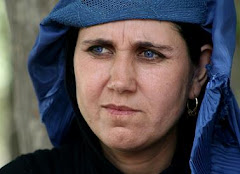
">The conference pledged over £10bn in funds for development in Afghanistan, with the UK one of the largest donors. This money will be vital in helping to shore up the fragile gains made over infrastructural development and human rights during the past 10 years. In particular, after the fresh horror of the video apparently showing the public execution of a young Afghan woman for adultery by Taliban gunmen, fears for the future of Afghanistan's women are growing.
Understandably women in Afghanistan are scared. They are scared that in all the political horse-trading that will occur as the international community begins its withdrawal from Afghanistan by the end of 2014, their rights will be sacrificed in the rush for the exit.
Let's not forget, significant progress on women's rights has been made. We can already be proud that UK aid to Afghanistan means that it is now possible for many girls to go to school and for women to take part in public life. And in case anyone thinks this money might be disappearing into some warlord's pocket - take a look at the numbers. Women now make up 27% of the Afghan parliament (it's 22% in our own parliament, in case you were wondering) and some 2.7 million girls are now at school in Afghanistan (under the Taliban it was virtually zero).
;">It must never be forgotten in all our rhetoric about a political solution that during their five years in power, the Taliban imposed a reign of terror on Afghan women. Women and girls were prisoners in their own homes, communities and towns. Afghanistan was hostile territory for women simply because they were women. The horrific abuses these women faced on a daily basis under the Taliban shocked the world and were one of the primary justifications for military interventions in 2001.
Without doubt progress has been hard-won, through bloody and tragic sacrifices made often by our own servicemen and women in combat, and often by brave Afghan civil rights campaigners both male and female - but during the past decade women's rights in Afghanistan have made great strides. There is no doubt, however, the job is not finished and the underlying statistics still make for grim reading and show just how easily all this work and promise could be undone if we don't get the leaving right. Because even now, Afghanistan remains one of the world's most dangerous places to be a woman. The maternal mortality rate is one of the highest in the world - an Afghan woman dies every two hours due to pregnancy-related causes. According to UN figures, a staggering 87% of Afghan women suffer domestic violence, and the scandal of marrying off very young daughters to much older, often abusive, men continues.
The Taliban and other armed groups have by no means relinquished control and still cast a dark shadow over women's lives in many parts of Afghanistan. Women in rural areas, particularly in the more conservative southern provinces and areas under de facto Taliban control, are being denied employment, freedom of movement and political participation.
High-profile female officials and human rights defenders have been killed simply for exercising their own rights or for defending the rights of others. These have included Malalai Kakar, the highest-ranking female police officer in Kandahar (she led a ten-woman police unit focused on domestic violence) shot dead by the Taliban on her way to work early one morning in 2008.
On top of targeted killings much-needed legislation like 2009's Law on the Elimination of Violence against Women is unfortunately having virtually no impact, with little or no willingness to implement them from the police or courts. In fact, women who report violence face being accused of crimes themselves. The most infamous case is that of Gulnaz, a young woman raped by her cousin's husband and then jailed for 12 years after she became pregnant. Like an estimated 400 women in Afghanistan, Gulnaz was imprisoned for a so-called "moral crime" and it took an unprecedented international campaign to win this one woman a presidential pardon last year.
As the date for the withdrawal of troops draws nearer and the jostling for political positions intensifies, the situation for women in Afghanistan has deteriorated. Hard-won gains are under sustained attack from conservative officials, religious bodies and insurgent groups. In the provinces of Ghazni, Logar and Wardak, for example, Amnesty International has talked to female officials who say that the direct threats from the Taliban are preventing them from travelling outside of the provincial centres and that most of the progress in girls' education and women's access to basic government services has been reversed.
The state of women's rights in Afghanistan is now at a critical crossroads. Surveys show there is widespread fear among Afghan women that their government and its international partners will trade away their rights in a cynical attempt to barter some kind of political settlement with insurgent groups ahead of the international military pull-out in 2014. The UK has a pivotal role to play. We have pledged to put women and girls at the heart of our international aid strategy. There is no other place where it is more critical to do so than Afghanistan. The Tokyo Conference is a vital opportunity for the UK to prove that our commitment to the women of Afghanistan in 2001 was not simply empty rhetoric.

.jpg)




0 نظرات:
Post a Comment